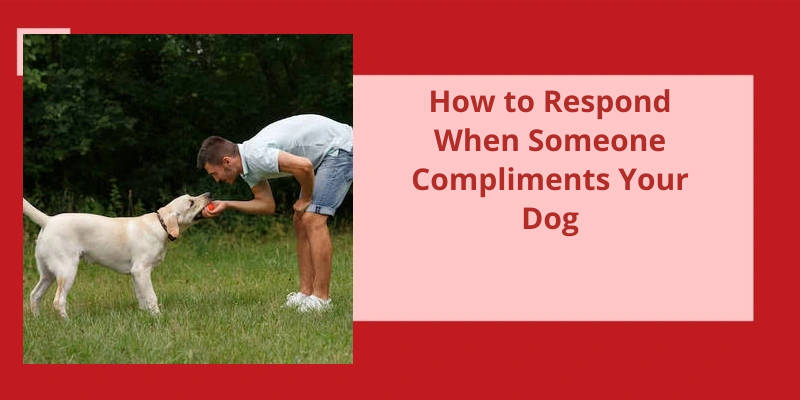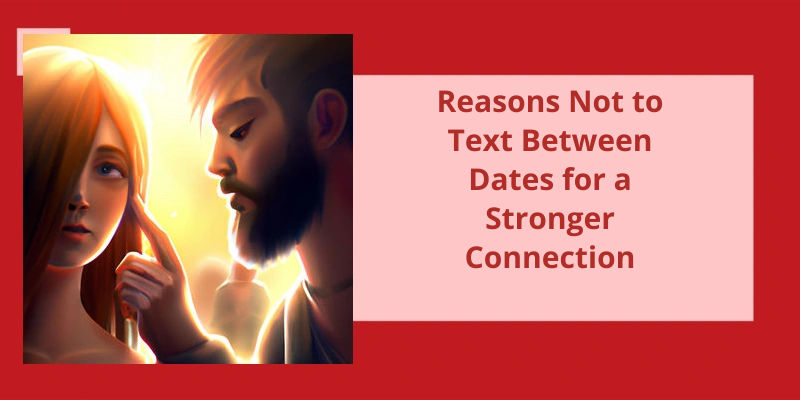Many would argue that there’s no greater expression of affection and devotion than saying "I love you." The phrase carries with it a weight and significance that can completely transform a relationship. So, when someone musters up the courage to say those three little words, the question arises: is it fine to say "I love you too?" Should one simply reciprocate the sentiment, or is there more to consider?
What Does It Mean When They Say Love You Too?
When someone says “I love you too,” it signifies that they reciprocate the feelings of love that the other person has expressed. It’s a comforting and reassuring response, as it validates the emotions shared by both individuals. It creates a sense of harmony and emotional connection between the two individuals.
It’s an affirmation that not only do they love the other person, but they’re also committed to nurturing and growing the relationship. By using this phrase, they’re expressing a willingness to invest time, effort, and emotions into the partnership. It strengthens the emotional connection and reinforces the trust and intimacy shared between the individuals.
It assures the person who initially confessed their love that their feelings are reciprocated, which can alleviate any doubts or insecurities they may have had.
It’s a powerful declaration that deepens the bond and affirms the love shared between individuals.
In This Topic, the Article Could Delve Into the Significance of Expressing Love Verbally, How It Can Enhance a Relationship, and the Impact It Has on Communication and Emotional Intimacy.
Expressing love verbally is a meaningful way to strengthen a relationship. When someone says “I love you too,” it reassures the other person that their feelings are reciprocated, which can foster a deeper emotional connection. Verbalizing love also allows for open communication and helps partners understand each other’s needs and emotions better. By saying “I love you too,” individuals create a safe and supportive environment where they can freely express their love and build emotional intimacy. Overall, verbalizing love is a positive and healthy aspect of a relationship, promoting understanding, trust, and happiness.
Being honest about your feelings is crucial when it comes to not saying “I love you too.” While it may not be an easy conversation to have, explaining your reasons and reciprocating their emotions can help maintain a genuine connection.
How Do You Not Say I Love You Too?
Instead of simply saying “I love you too,” you can choose to express your feelings in other ways. For instance, you can look into the persons eyes, hold their hand, and let them see the affection in your gaze. Actions often speak louder than words, and this gesture can convey your love without explicitly saying it. Additionally, you can demonstrate your love through acts of kindness or thoughtful surprises. Show your partner that you care deeply for them and that their happiness is important to you.
Sometimes, it can be helpful to have an open and honest conversation about why you find it difficult to say “I love you too.”. Communication is key in any relationship, so expressing your concerns or reservations can lead to a deeper understanding between you both. This way, you can address any insecurities or fears you might have and work through them together.
It’s important to remember that love is personal and unique for each individual. Some people find it easier to express their emotions verbally, while others prefer to show their love through actions or gestures. What matters most is that you find a way to connect with your partner and convey your affection in a way that feels comfortable and genuine to you.
Devote time and effort into finding alternative ways to convey your feelings sincerely. Ultimately, being honest about your emotions and finding methods that align with your personal preferences will strengthen your relationship and create a deep connection between you and your partner.
Exploring Different Love Languages: This Topic Could Discuss the Concept of Love Languages and How Individuals May Have Different Preferences in How They Like to Receive Love and Affection. It Could Provide Examples of the Different Love Languages and How They Can Be Used to Express Love Without Saying “I Love You Too.”
When it comes to expressing love, everyone has their own unique way of giving and receiving affection. This idea is often referred to as love languages, which encompass different preferences in showing and receiving love. While saying “I love you too” may be the common phrase, there are various other ways to express love that align with different love languages.
For instance, some people may appreciate acts of service, where actions speak louder than words. This could involve performing helpful tasks or fulfilling their partner’s needs without being asked. Others might value quality time, where uninterrupted moments together create a strong bond and convey love. This love language emphasizes the importance of undivided attention and meaningful shared experiences.
Physical touch is another love language that showcases love and affection through physical gestures. Holding hands, hugging, or cuddling can all convey deep emotions without the need for verbal expressions. On the other hand, there are individuals who find reassurance and affection through receiving gifts. These gifts serve as symbols of care and thoughtfulness.
Lastly, some people resonate with words of affirmation as their love language. They appreciate verbal expressions of love, compliments, and encouragement. This may involve expressing appreciation for their qualities, highlighting their strengths, or vocalizing admiration.
So, while it’s perfectly fine to say “I love you too,” understanding and respecting love languages can open up a world of alternative expressions of love that may resonate even more strongly with different individuals.
Is I Love You Too Grammatically Wrong?
Is it fine to say “I love you too?”. This is a common question that arises when considering the grammatical correctness of the phrase. If you’re using the phrase in a formal text, it’s advisable to include the comma.
It’s often a simple and heartfelt response to someone expressing their love for you. In such cases, grammar may not be the primary concern, as the focus is on reciprocating affection.
Whether it’s a text message or a heartfelt letter, the comma serves as a reminder to pause and reflect on the profoundness of the statement being made.
However, the key is to understand that grammar isn’t the main focus when expressing affection; it’s the genuine sentiment behind the words that truly matter.
Different Ways to Express Love and Affection in English
- Show kindness and affection through gestures
- Use terms of endearment and pet names
- Express love through words and heartfelt compliments
- Give thoughtful gifts or surprises
- Demonstrate love and care through acts of service
- Create quality time for special moments and shared experiences
- Listen actively and supportively
- Show physical affection like hugging, holding hands, or kissing
- Write love letters or heartfelt messages
- Respect and support each other’s goals and dreams
- Be patient, understanding, and forgiving
- Show gratitude and appreciation for each other
- Celebrate milestones and create traditions together
However, sometimes you may find yourself wanting to respond in a more creative or unique way. If you’re looking for sweet and cute responses to “I love you”, keep reading to find some lovely ideas that will surely make your loved one’s heart melt.
What Is the Reply of I Love You?
When someone tells you “I love you,” it can be a truly special moment. It’s a declaration of deep affection and it’s only natural to want to respond in kind. The sweetest and cutest response is, of course, to say “I love you, too.”. It’s a simple yet powerful way to reciprocate those feelings and let the person know that you care about them just as much.
Sometimes, though, saying those three little words might feel a bit cliché. But remember, sincerity is key. If you genuinely feel the same way towards the person, don’t worry about sounding trite. Your genuine response will mean the world to them. After all, love is a beautiful emotion, and expressing it should never be taken lightly.
If youre looking for other sweet and cute responses, there are plenty of options. You could say something like, “You’ve no idea how much you mean to me,” or “Im so lucky to have you in my life.”. These responses show your appreciation and gratitude for the person, and they emphasize the depth of your feelings.
Another adorable response could be, “I love you more than words can express.”. This conveys that your love for them surpasses the limitations of language and goes beyond what words can describe. It’s a heartfelt way to let them know the magnitude of your affection.
Ultimately, the most important thing is to be sincere and authentic in your response. The words you choose may vary, but what truly matters is that you genuinely feel love towards the person. So, embrace that feeling and let it shine through your reply.
Common Mistakes to Avoid When Responding to “I Love You”
- Rushing to reciprocate the feeling without truly meaning it
- Assuming the love is unconditional without clarifying expectations
- Reacting defensively or negatively if the feeling isn’t mutual
- Being dishonest about your own feelings
- Using the phrase casually or insincerely
- Ignoring or dismissing the significance of the confession
- Making promises or commitments without thinking them through
- Not communicating openly and honestly about the future of the relationship
- Allowing fear or insecurity to dictate your response
- Dismissing or belittling the other person’s feelings
- Not considering the timing or context of the confession
- Not taking the time to fully understand your own emotions before responding
Now, let’s delve into the different responses and contexts where saying “I love you too” or “Me, too” would be appropriate, as well as situations where alternative expressions might be more fitting.”
Is It Okay to Reply I Love You Too?
When it comes to matters of the heart, expressing ones feelings may come with it’s own set of norms and expectations. The sentiment “I love you” carries a weighty significance, and how one chooses to respond can shape the dynamics of a relationship. So, is it fine to simply reply with “I love you too”? The answer is a resounding yes.
When someone confesses their love to you, reciprocating those feelings is a natural response. Saying “I love you too” validates their emotions and reassures them that your affection is mutual. This simple phrase can have a profound impact on the emotional connection between two individuals, fostering a deeper bond and understanding.
Of course, there are alternative ways to express your love, such as stating “I also love you.”. However, in the real world, it isn’t uncommon for people to opt for a more concise response. A casual “Me, too” is often employed, infused with an element of humor and lightheartedness. It serves as a playful and relatable way to acknowledge the love shared between two people.
While the language we use to express love may vary, it’s crucial to consider the underlying sincerity and genuineness of our words. Ultimately, the most important aspect is the sentiment behind the response.
Love is a beautiful emotion, and reciprocating those feelings strengthens the connection between two individuals. Whether you choose a traditional phrase or add a touch of humor, the important thing is to convey your love sincerely. So the next time someone declares their love, feel free to embrace the opportunity and respond with your own heartfelt expression.
Different Ways to Respond to “I Love You”: Explore Alternative Ways to Respond to “I Love You” Besides Saying “I Love You Too,” Such as “I Care About You Deeply” or “You Mean the World to Me.”
- I care about you deeply.
- You mean the world to me.
- Having you in my life is everything.
- I’m so lucky to have you.
- You bring so much happiness into my life.
- I’m here for you, always.
- Our connection means everything to me.
- Your love fills my heart with joy.
- Words can’t express how much you mean to me.
- I cherish every moment spent with you.
- You’re my greatest blessing.
- Thank you for loving me.
- I’m grateful to have you by my side.
Conclusion
However, what truly matters is the sincerity and authenticity behind those three little words. It demonstrates that you value and cherish the other person's feelings and that the relationship is significant to both of you. While there may be hesitation or fear associated with expressing love, being honest and genuine in your response can strengthen the bond between you and your partner. So, if you truly feel love towards someone, don't be afraid to reciprocate their feelings with a heartfelt "I love you too."






